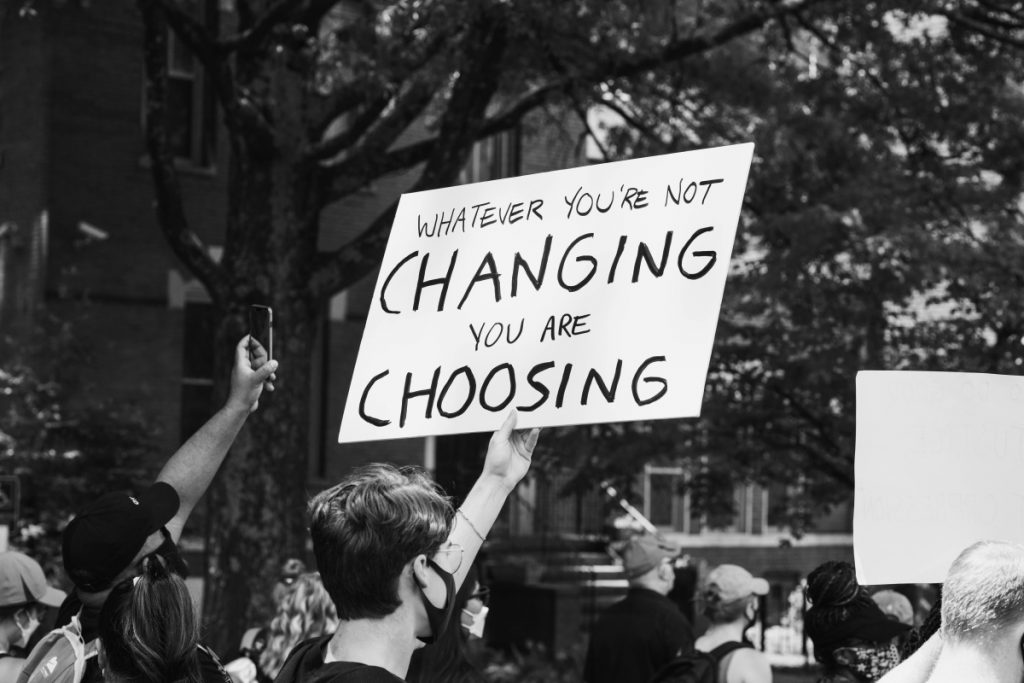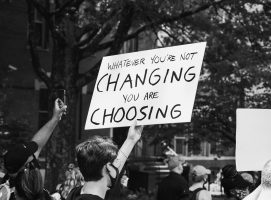The #BlackLivesMatter movement has put the spotlight on systemic racism and inequality at all levels of our society. In recent months we have had to have uncomfortable, yet critical conversations about it. Many of us have had to take a hard look at ourselves only to come to the realization that we are part of the problem.
Sadly, the issue of racism and inequality can be seen everywhere, also within the field of development. According to Pailey (2019), we need to realize that the industry is still to this day structured on hierarchies stemming from the colonial era. The concept of race still plays a pivotal role. In spite of efforts to deal with this, we continue to overlook repeat the same mistakes.
The White Savior Complex
My first point of departure for this blog is the issue of the White Savior Complex, one of the pitfalls of development. In a very interesting article, Annie Windholz describes the concept as:
“ The term “white savorism,” refers to an idea in which a white person, or white culture, rescues people of color from their own situation. Throughout the white savior’s journey they themselves are centered: they are often portrayed as messianic and tend to “learn something” about themselves in the process of rescuing others.”
Unpacking White Saviorism: How white and western society’s desire to help can do more harm than good (Medium, 26 June 2017)
One way in which this white saviorism plays out, is through representations of development. Many of us have seen adverts portraying a starving African child, dependent on the kindness and generosity of a Westerner in order to have a future. Similar imagery can be seen in everything from Hollywood movies, to humanitarian appeals or media coverage. The privileged has a moral duty save the less fortunate and vulnerable distant Other.
A moment of self-reflexion
Looking back at my own personal history, I have to admit that it has taken too long for me to realize that I too, have been shaped by these ideas. As a young girl I had a dream of saving the world. For me, saving the world meant going to Africa to start an orphanage for “the poor and disadvantaged children of Africa”. Of course, it didn’t matter where in Africa, since I at that point couldn’t even name five countries on the continent, let alone understand its diversity. I had the idea that the whole of Africa was desperate for help, and I wanted to be meaningful somehow. How many of you have had had similar thoughts at some point?

Kusimama Africa & #nowhitesaviors
A little more than two years ago, a couple of frustrated development practitioners started the Instagram account called No White Saviors. They had grown tired of the presence of the White Savior Complex in development and sought to raise awareness of the issue. After gaining massive response, their account has already grown to more than 760 000 followers. From this fast growth, the organisation Kusimama Africa was born. The aim was to decolonize development through education, action and advocacy. (No White Saviors, 2020) Through their various social media platforms and the advocacy campaign #nowhitesaviors, they seek challenge these narratives and educate people both in and outside of Africa. In an interview on the movement on BBC.com, one of the founders said that she and her team refers to her role in the team as a “White Savior in recovery”.
Encouraging the conversations
The truth is that we need to hold ourselves and others accountable and question the mindset that has been powered by angled representations development. This is not a quick fix but a process of self-examination and reflexivity – at least for me. I too, am a White Savior in recovery. Pailey (2019) emphasized last year, even before the rise of the #blacklivesmatter movement, there are true potentials of social media movements in the fight against the mindsets, the white supremacy and the saviorism in the industry. Movements such as #nowhitesaviors and #blacklivesmatter are part of a wider conversation that needs to take place. These will help us to continuously examine ourselves. We need to hold each other accountable and have uncomfortable conversations so that we can be better and do better.
See you next week!
Link to the No White Savior Instagram can be found below!
References
No White Saviors, 2020, Who We Are, No White Saviors: Powered by Kusimama, https://nowhitesaviors.org/
Pailey, R. N., 2019, De-centering the ‘White Gaze’ of Development, Development and Change, 51(3)
Windholz, A. 26 June 2017, Unpacking White Saviorism: How white and western society’s desire to help can do more harm than good, Medium, https://medium.com/@anniewindholz/unpacking-white-saviorism-7d7b659dcbb3


